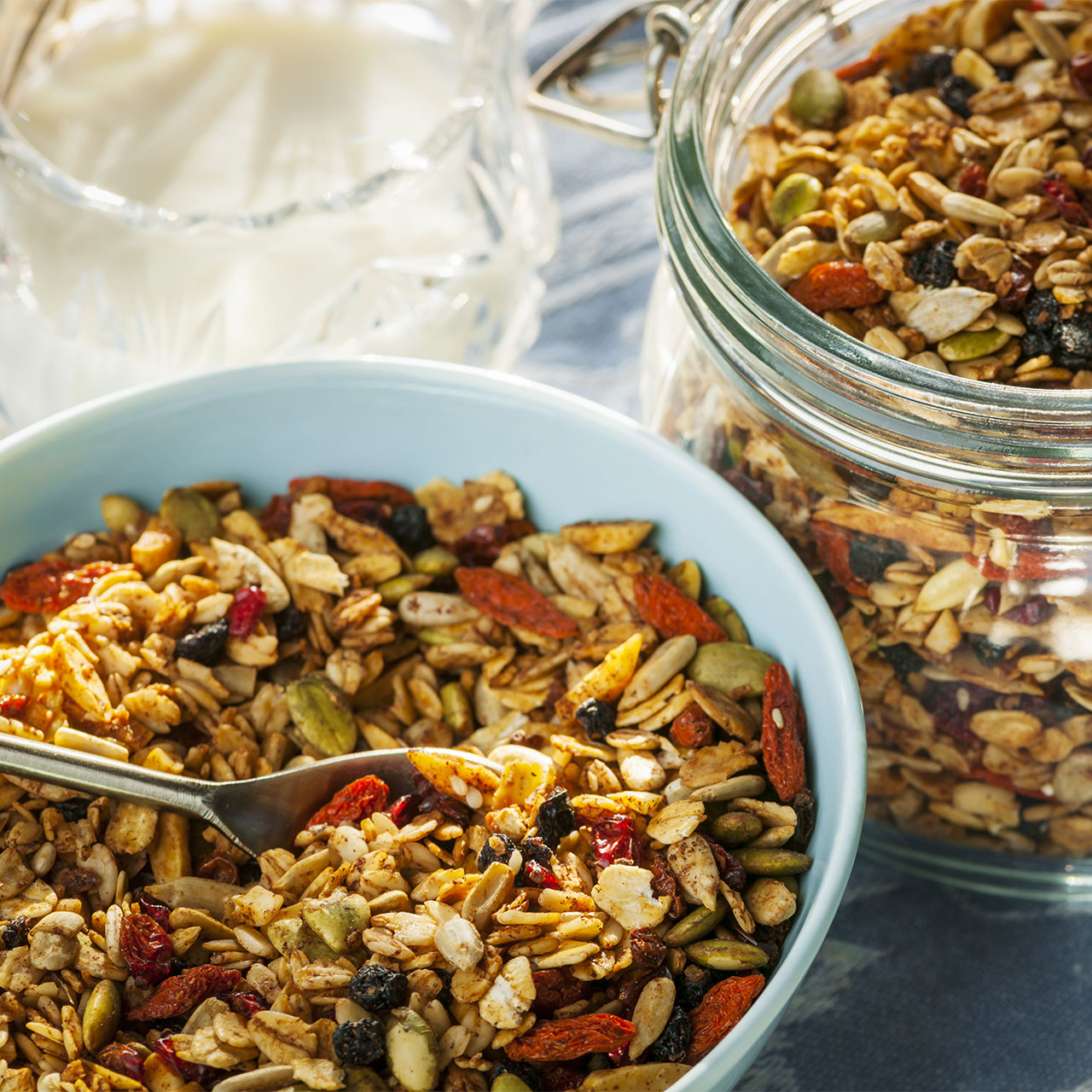In the era of convenience, ultra-processed foods have become ubiquitous in our diets, offering quick and easy solutions for meals on the go. However, the convenience often comes at a cost, as emerging research sheds light on the potential impact of these heavily processed options on our metabolism. Understanding these dynamics is crucial for those seeking to maintain a healthy metabolism and make informed choices about the fuel they provide their bodies.
We spoke with Dr. Shara Cohen, Mary Sabat; MS, RDN, LD, Emily Johnson, RD, nutritionist at Juicereport; Jesse Feder, RDN, CPT; Krutika Nanavati, registered nutritionist and dietitian; and Lisa Richards, creator of The Candida Diet. They revealed that foods such as sugary cereals, processed meats, potato chips, sugary carbonated drinks, trans fats, processed pastries, and white bread are the ultra-processed foods to avoid.


Sugary Cereals
Indulging in sugary cereals might seem like a tempting and convenient breakfast choice, but it comes with potential consequences for metabolism. These cereals, often laden with refined sugars, can lead to a spike in blood glucose levels, prompting a subsequent insulin surge. The frequent consumption of high-sugar foods may contribute to insulin resistance over time, impairing the body's ability to regulate blood sugar effectively.
"Sugary cereals are one of the most unhealthy processed foods you can have. They are loaded with sugar, sodium, and refined carbohydrates," Feder says. "These things, when eaten in high amounts and consistently, can lead to obesity, high blood pressure, diabetes, and heart disease. The highly processed and refined ingredients typically give you a jolt of energy since they are able to be digested very quickly. This then causes a crash in our blood sugar, and can slow your metabolism."

Processed Meats
Delving into the realm of processed meats reveals a potential link to metabolic slowdown. Processed meats, often treated with additives and preservatives for extended shelf life, can introduce harmful compounds that might interfere with metabolic processes. High consumption of processed meats has been associated with increased inflammation and insulin resistance, both of which can contribute to a sluggish metabolism.
"Sausages, bacon, and hot dogs have a high concentration of saturated fats and sodium. They also often contain preservatives like nitrates, disrupting metabolic health and leading to weight gain," Johnson says.

Potato Chips
Eating potato chips may provide a momentary delight, but the repercussions on metabolism are worth considering. These snacks, often high in unhealthy fats and refined carbohydrates, can contribute to insulin resistance and inflammation. The rapid spike in blood sugar levels caused by the simple carbohydrates in potato chips prompts an insulin release, which, over time, can lead to metabolic dysfunction. The excessive consumption of these processed snacks has been linked to weight gain and metabolic disturbances, potentially slowing down the body's ability to efficiently burn calories.
"Potato chips are typically fried in unhealthy oils and can be high in calories. Regular consumption of such foods can contribute to weight gain, metabolic imbalances, and an increased risk of chronic conditions like obesity and heart disease," Sabat says.

Sugary Carbonated Drinks
Sipping on sugary carbonated drinks may offer a momentary refreshment, but the impact on metabolism is cause for concern. These beverages, laden with high-fructose corn syrup and excessive sugars, can lead to insulin resistance and disrupted metabolic function. The rapid influx of sugar triggers an insulin response, potentially promoting fat storage and hindering the body's ability to regulate blood sugar effectively.
"Chemicals and added sugars cause metabolic disruption, leading to obesity, insulin resistance, and the development of chronic diseases. Instead of drinking highly processed beverages, it's best to stay hydrated with water, herbal teas, or freshly squeezed juices," Cohen says.

Trans Fats
Consuming trans fats, commonly found in partially hydrogenated oils present in many processed and fried foods, poses a threat to metabolic efficiency. These fats have been linked to increased inflammation, insulin resistance, and adverse changes in body composition. Trans fats not only contribute to elevated levels of bad cholesterol (LDL) but also diminish insulin sensitivity, potentially impeding the body's ability to regulate blood sugar and store energy efficiently. Over time, a diet rich in trans fats may lead to metabolic dysfunction, making it harder for the body to burn calories effectively.
"Trans fats found in margarine and some processed snacks should be avoided as they are linked to a variety of health problems including obesity and metabolism syndrome," Nanavati explains.

Processed Pastries
Processed pastries are a popular indulgence in today's fast-paced world, offering a convenient and often irresistible option for those seeking a quick and sweet treat. These pastries, ranging from muffins and croissants to doughnuts and cookies, are typically characterized by their long shelf life and mass production techniques, which involve the use of refined flours, sugars, and artificial additives. But a diet high in processed pastries may contribute to weight gain and, coupled with a sedentary lifestyle, potentially lead to a slower metabolism.
"They are made with refined carbohydrates, added sugars, and oils, all of which can spike blood sugar," Richards explains. She says that the blood sugar spikes caused by breakfast pastries "will trigger an insulin release, and if high over time, can lead to insulin resistance and weight gain."
"The added oils make them high in calories as well and low in nutrients, which leads to an over consumption of calories. The rapid nature of the digestion of pastries leaves the individual hungry shortly after and ultimately eating again soon after," Richards says.

White Bread
White bread, a staple in many households, has become a dietary preference for its soft texture and mild flavor. However, its link to slow metabolism can be attributed to the refining process it undergoes. Unlike whole grains, which retain their bran and germ, white bread is made from refined flour, a process that removes the nutrient-rich components, leaving behind mainly the starchy endosperm.
The refining process not only strips away essential nutrients, such as fiber, vitamins, and minerals, but it also results in a product with a higher glycemic index. White bread is rapidly converted into glucose in the bloodstream, causing a sharp spike in blood sugar levels.
"Bread is a food that should be eaten in moderation due to it's processed and refined nature," Richards says. "Bread, of all kinds, is calorically dense and inflammatory. White bread is made with refined carbohydrates and lacking in fiber and other beneficial nutrients," she explains.
Richards adds that "Refined carbs are highly inflammatory and turn to sugar quickly causing a quick rise in glucose; eating bread on a regular basis will lead to weight gain because most breads are made from refined grains, sugar, and preservatives," which are "inflammatory ingredients and are also broken down quickly to be stored as fat."


























